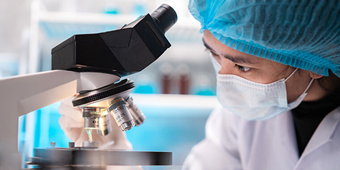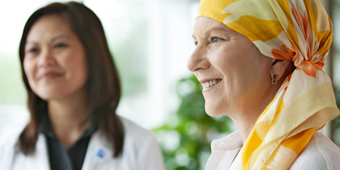New Proposal Calls For Earlier Mammograms

Answer a few questions and we'll provide you with a list of primary care providers that best fit your needs.
As breast cancer cases have increased 2 percent a year since 2015 among younger women, the U.S. Preventive Services Task Force recently proposed that women at average risk of breast cancer start every-other-year mammograms at age 40. That’s an update of the task force’s 2016 recommendation for women to start biennial screenings at age 50.
Surgical oncologist Selyne Samuel, MD, tells Premier Health Now, “The guidelines certainly are an improvement in the proper direction, but not sufficient. I think they realize women starting at the age of 50 is way too late, leading to later diagnosis for patients and missing out on opportunities for early treatment.”
Already health care organizations, like the American College of Radiology, the American Society of Breast Surgeons, and the American College of Obstetricians and Gynecologists, have been recommending annual mammograms beginning at age 40, she says.
Waiting until age 50, she says, risks “missing out on early detection,” and could contribute to the rise in breast cancer among younger women.
“Let’s not forget that the pandemic also played a part because we halted elective procedures and we also halted screenings across the board. And now we’ve seen that rise of detection of cancers, particularly breast cancer.”
Dr. Samuel points out that the new recommendation for starting screening at age 40 is for women of average risk of breast cancer.
If you’re in a high-risk group, she recommends that you talk with a breast specialist or your ob-gyn on how often you should be screened. Women at high risk, she adds, should get “a mammogram, alternated with a breast MRI, every 6 months.”
Women at higher risk include those who have:
- A family history of breast and/or ovarian cancer
- Genetic mutations that raise the risk of breast cancer
- Certain types of noncancerous breast lesions, or abnormal breast tissue, can raise a woman’s risk of developing breast cancer
- Undergone chest wall radiation before age 30 for other forms of cancer such as non-Hodgkin lymphoma
Dense breasts also raise the risk of breast cancer.
And Black women have been found to be at 40 percent greater risk of dying of breast cancer, which is the second most common cancer among women in the United States.
The U.S. Preventive Services Task Force’s updated recommendation is not final. It will be available on the task force website for public comment through June 5.
Answer a few questions and we'll provide you with a list of primary care providers that best fit your needs.
Source: Selyne Samuel, MD, Premier Surgical Oncology; CNN





